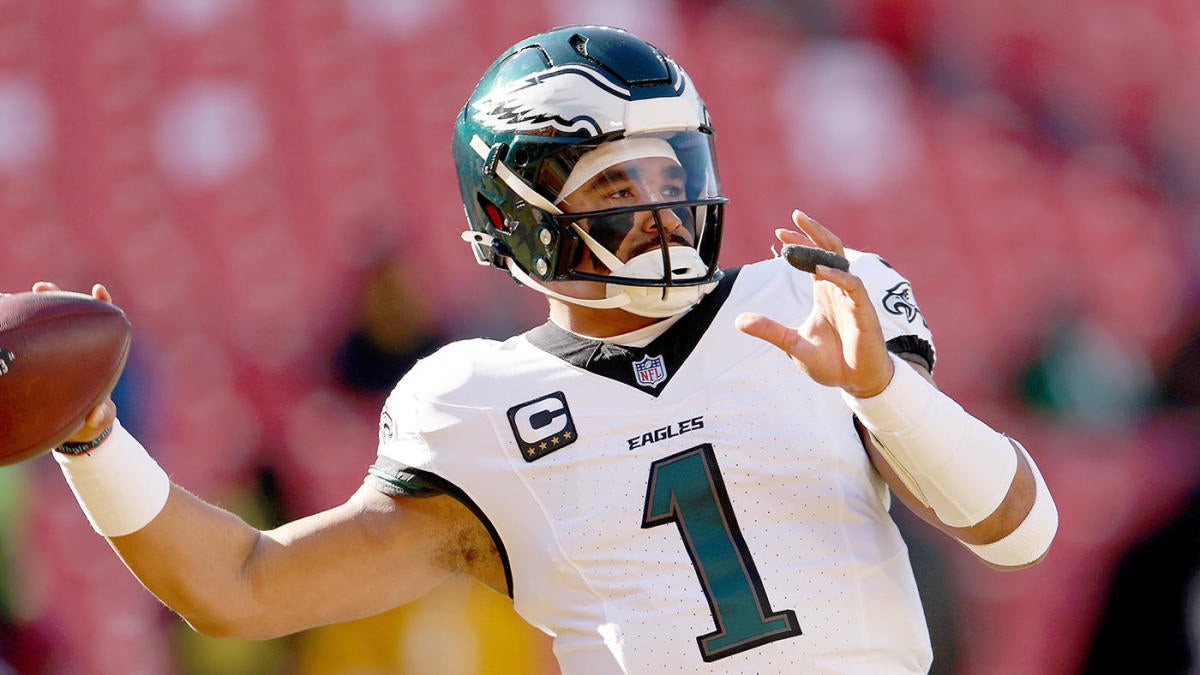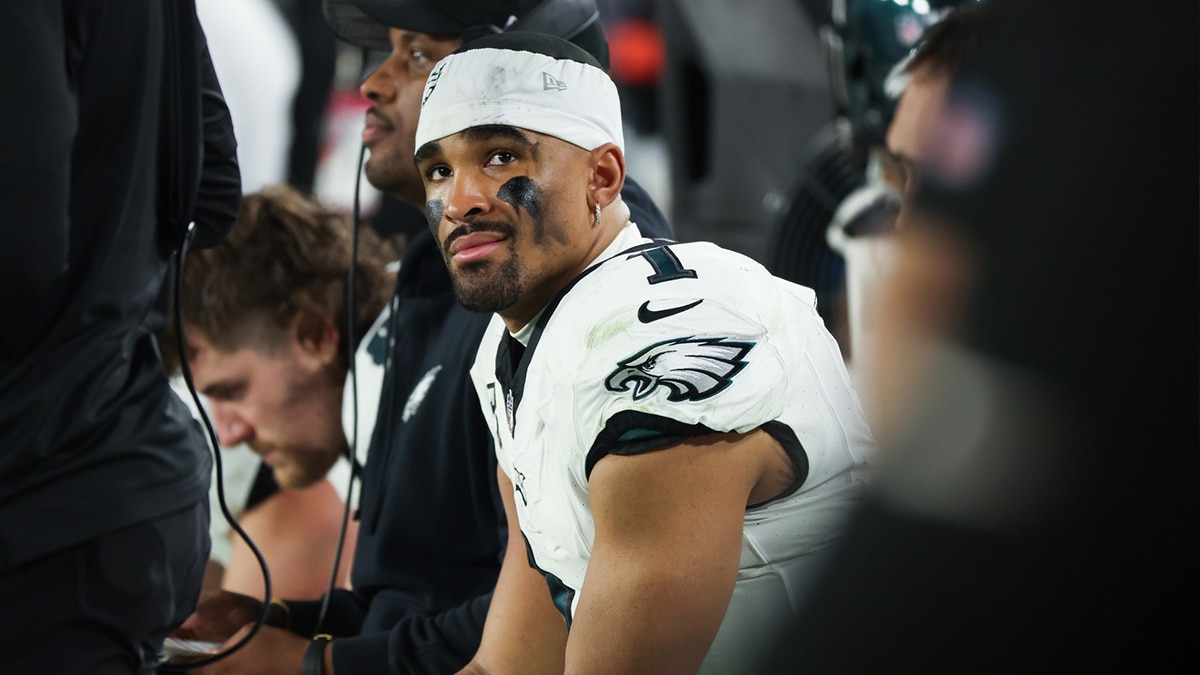
Concussion Sidelines Hurts, Eagles Soar With Pickett’s Wings: Examining Football’s Perplexing Impact
Introduction
The NFL world was recently rocked by two polarizing events: the gruesome concussion sustained by Philadelphia Eagles quarterback Jalen Hurts and the triumphant return of Pittsburgh Steelers quarterback Kenny Pickett. These incidents juxtapose the inherent dangers of the sport with the resilience and talent that can ultimately triumph over adversity. This article will critically examine the complexities surrounding concussions in football, exploring the physical, mental, and ethical challenges they present.
Hurts’ Concussion: The Dangers of Football
Hurts’ concussion, sustained during the Eagles’ Week 15 loss to the Chicago Bears, underscored the relentless risks inherent in football. The sixth-year quarterback was hit hard by a Bears defender, suffering a concussion that forced him to leave the game. This incident serves as a sobering reminder of the physical toll football can take, even on its most elite athletes.
Concussions are brain injuries caused by a sudden impact to the head, resulting in a disturbance in normal brain function. Symptoms can range from headaches and dizziness to memory loss and cognitive impairment. In severe cases, concussions can lead to long-term health issues, including chronic traumatic encephalopathy (CTE).
Pickett’s Resurgence: The Triumph of Resilience
While Hurts’ concussion cast a shadow over the NFL landscape, Pickett’s resurgence offered a glimmer of hope. The rookie quarterback, who had struggled in his first few starts, led the Steelers to an impressive victory over the Baltimore Ravens in Week 17. Pickett’s performance, which included two touchdown passes and no interceptions, was a testament to his determination and resilience.
Pickett’s success is a reminder that even in the face of adversity, athletes can overcome challenges and achieve greatness. His story serves as an inspiration for anyone who has faced setbacks in life.
The Complexities of Football’s Dangers
While football is inherently dangerous, the NFL has taken steps to mitigate the risks of concussion. The league has implemented stricter rules on helmet-to-helmet hits and increased the use of concussion protocols. However, some critics argue that these measures are not enough.
One of the biggest challenges in addressing football’s dangers is the nature of the sport itself. Football is a contact sport, and concussions are simply an inherent part of the game. There is no way to eliminate the risk of concussion without changing the fundamental nature of the sport.
Perspectives on Concussions
There is a wide range of perspectives on concussions in football. Some believe that the risks are too great and that the game should be banned. Others believe that the benefits of football outweigh the risks and that the sport should continue to be played. Still, others believe that football can be made safer without eliminating the elements that make it exciting.
Ethical Considerations
The issue of concussions in football also raises a number of ethical considerations. Some argue that it is unethical to allow players to expose themselves to the risk of long-term brain damage for the sake of entertainment. Others believe that players are free to make their own choices about whether or not to play football.
Conclusion
Concussions in football are a complex issue with no easy answers. The NFL has implemented stricter rules and protocols to mitigate the risks, but some critics argue that these measures are not enough. Ultimately, it is up to individuals to decide whether or not they believe the benefits of football outweigh the risks.
The stories of Jalen Hurts and Kenny Pickett serve as a microcosm of the complexities surrounding concussions in football. Hurts’ concussion is a reminder of the inherent dangers of the sport, while Pickett’s triumph is a testament to the resilience and determination of its athletes. As the NFL continues to grapple with the issue of concussions, it is important to engage in thoughtful and informed discussion about the risks and benefits of the game.












